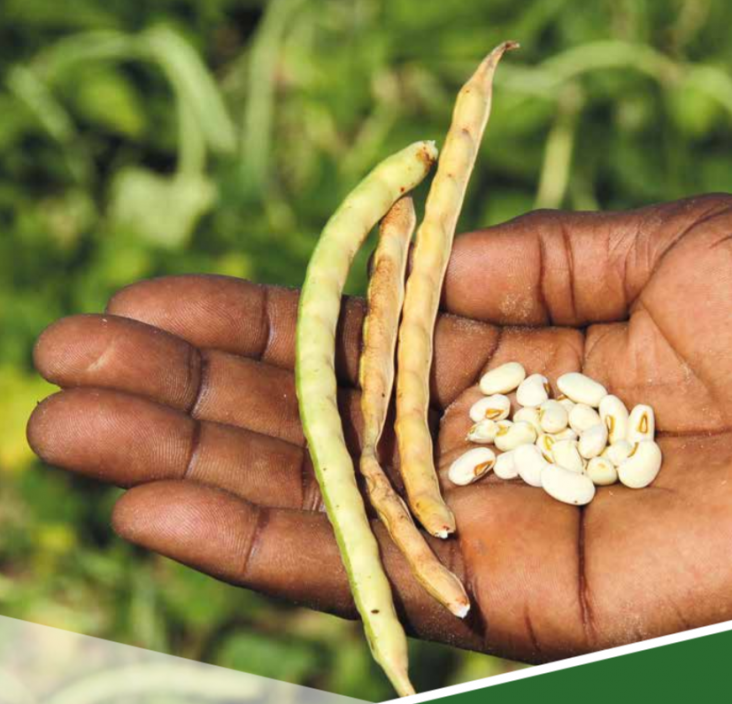Speeches Shim

Food Security – Feed the Future
The U.S. Government’s Global Food Security Strategy (GFSS) seeks to reduce global hunger, malnutrition and poverty. USAID/WA’s GFSS brings additional financial resources to enable West Africa’s public and private sector actors to increase agricultural productivity, improve agricultural and trade policies, regulations and standards, improve food and nutrition security and strengthen the capacity of regional institutions to deliver services. It also contributes to building the resilience of vulnerable populations in West Africa to adapt to and recover from shocks.
Expanded inclusive agriculture-related regional and international trade, markets and investment
- Reducing barriers to trade, increasing competitiveness of agricultural businesses, and expanding the availability of agricultural technologies including improved varieties of seed contributes to agricultural growth and transformation in West Africa. The following USAID/West Africa programs address these key issues by catalyzing regional transformation:
- The Trade Facilitation West Africa (TFWA) Program is an initiative driven by multiple development partners to improve trade facilitation in West Africa. Trade facilitation plays an important role in development, enhancing countries' competitiveness and decreasing the transaction costs of goods and services. Free and efficient trade also contributes to inclusive economic growth, increased employment, and food security. The TFWA Program also includes a special focus on improving the position of women, especially small-scale women traders.
- The West Africa Trade Hub (WATH) seeks to improve private sector competitiveness in West Africa with a focus on increasing agricultural productivity and profitability of smallholder farmers in Nigeria, Côte d’Ivoire, Senegal and in the Sahel and to promote West Africa’s regional and international trade. Private sector competitiveness refers to the ability of a business, a sector or a country to effectively sell and supply goods and services in a market, harness the opportunities offered by globally integrated markets, and benefit from international trade.
- The Partnership for Agricultural Research, Education and Development (PAIRED) enhances the commercial seed industry in West Africa. It supports scaling up of promising agricultural technologies and innovations to farmers and other technology users throughout the major agricultural value chains in the region. It also increases private sector seed production and improve cross-border seed trade through the application of regional harmonized seed regulations.
- The Enhancing Growth through Regional Agricultural Input Systems (ENGRAIS) Program, improves fertilizer quality and availability for West African farmers. It works with the private and public sector to assist countries to adopt and implement the Economic Community of West African States ( ECOWAS) regional fertilizer regulations and increase the availability and demand for high quality fertilizer.
Partnering for impact in West Africa
USAID partners to increase the capacity of West African private sector and regional organizations to improve their abilities to implement their regional mandates and provide better services to member nations and host countries. USAID develops and supports several private-sector regional business associations dedicated to bringing private sector member-driven solutions to address shared development and business challenges: through its partnership with the Sustainable Shea Initiative (SSI) and the Global Shea Alliance (GSA), USAID addresses industry-wide issues including a lack of women’s empowerment, poor working conditions and environmental sustainability in West Africa. USAID provides capacity building support that improves local ownership and sustainability to the emerging West Africa Fertilizer Association (WAFA), a member-based association of private sector fertilizer actors. ECOWAS now recognizes WAFA as the fertilizer industry representative in the region and as a key partner to improve and increase the flow and use of quality and adapted fertilizers by West African farmers. USAID also provides extensive capacity building and institutional strengthening support to the West and Central Africa Council for Agricultural Research and Development (CORAF) to demonstrate its results as an impact-driven organization.
Increased resilience through management of shocks, risks and stresses
USAID/West Africa and Permanent Interstate Committee for Drought Control in the Sahel (CILSS) work together to coordinate different actors focusing on regional resilience to help vulnerable populations in West Africa to adapt to and recover from shocks. This collaboration introduces resilience, nutrition, climate change and risk management into regional and national agriculture investment plans.. USAID/West Africa provides funding to CILSS to develop and implement the Cadre Harmonizé for the Identification of Risk Areas and Vulnerable Populations throughout its member states. This tool enables all organizations and governments collecting information and statistics related to food insecurity to use the same system and methodology. This provides a more accurate picture of the region’s vulnerabilities and is utilized to ascertain the right mix of assistance interventions.
Increased access to safe and nutritious foods
USAID supports regional public and private sector institutions to strengthen food safety systems, improve nutrition monitoring and surveillance systems, and harmonize and scale regional fortification and biofortification policies and technologies to increase people's access to safe and nutritious foods in West Africa. USAID/WA supports ECOWAS’ effort to improve the integration and monitoring of nutrition indicators in the Regional Agricultural Investment Plan (RAIP), and the National Agricultural Investment Plans (NAIP) for all 15 ECOWAS Member States.

Comment
Make a general inquiry or suggest an improvement.